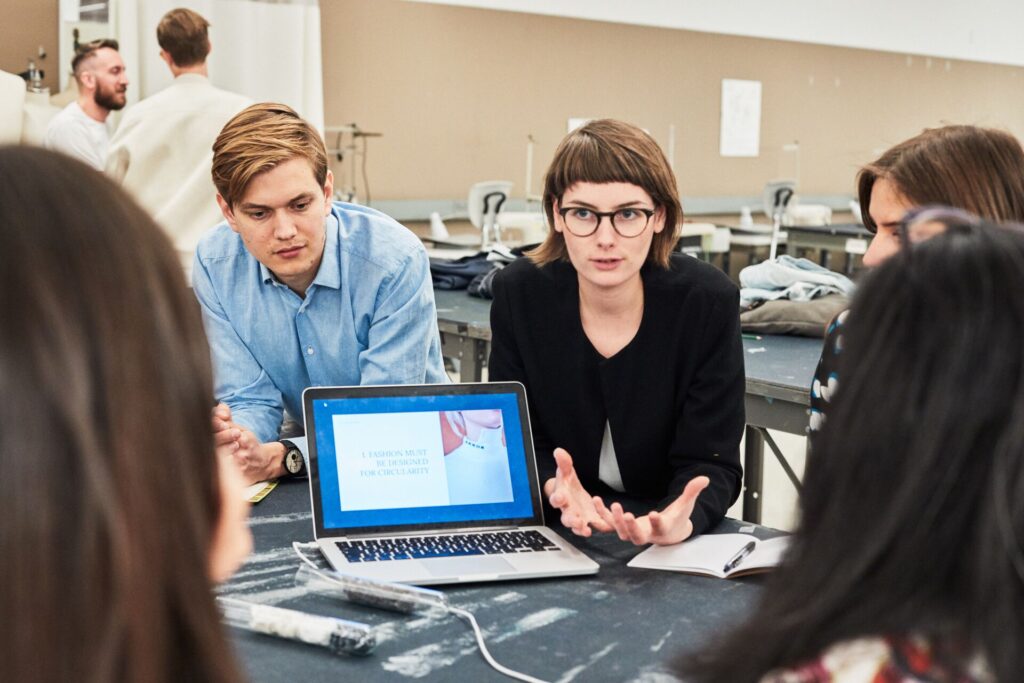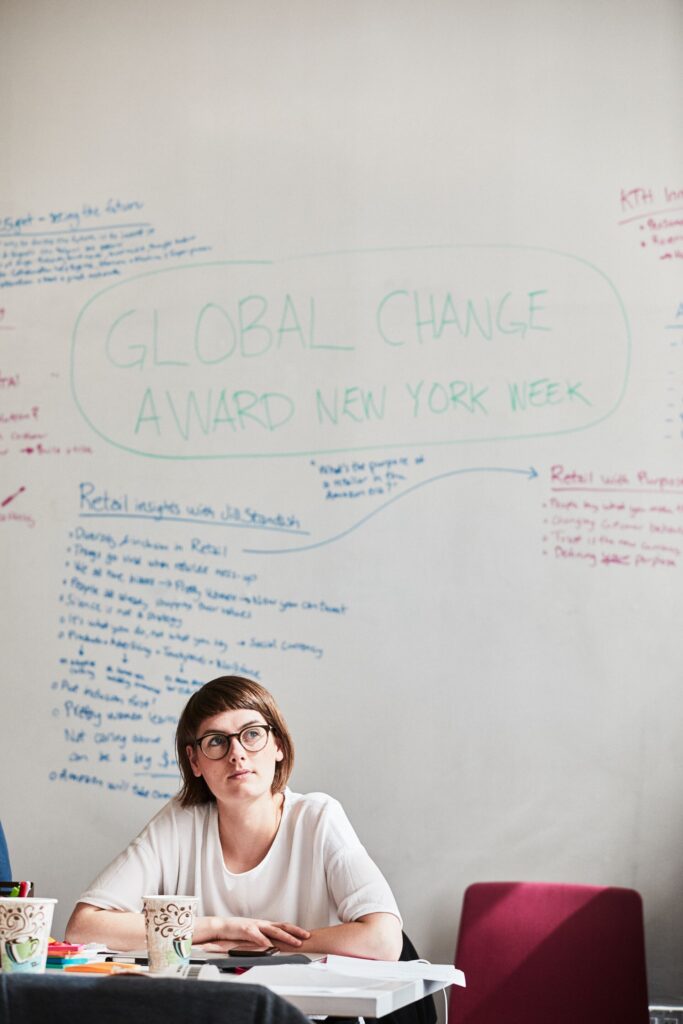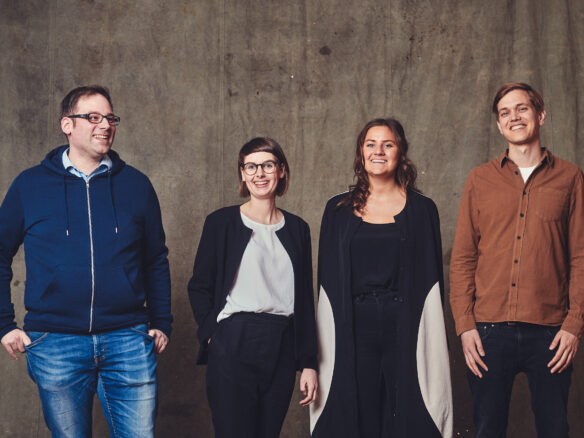
Like all big industries, fashion is complex, consisting of a globally intertwined web of suppliers, manufacturers, designers and more. circular.fashion is re-inventing its ecosystem, making fashion digital and circular.
With digital tools and software solutions, circular.fashion enables manufacturers to promote circular textiles and makes it easy for fashion designers to select and combine fabrics and components in a recyclable way. A digital product passport makes shoppers aware of what impact their latest purchase has had on the planet, and provides material information to staff at recycling plants.
With these solutions, it’s no surprise circular.fashion won the Global Change Award back in 2019. Now, three years later, it’s not just an innovation anymore. It’s well-established as an industry change-maker.
“In the past two years, we have trained over 1,000 designers, consulted more than 90 global retailers and fashion brands, and enabled thousands of products to circulate with the circularity.ID® digital product passport,” says founder Ina Budde.

Before winning the GCA, circular.fashion had developed prototypes for the design software, digital product passports and reverse supply chain intelligence.
”The financial backing from the GCA made it possible to increase our team size with industry experts. Finding the right people meant that we could increase our output without losing focus or quality,” explains Ina Budde.
“This led to a large increase in productivity as we could maintain our core business of circular design trainings, in which we are the industry leader, while developing our innovative products.”
According to her, the most valuable part of the GCA was the network it provided and the doors it opened to supporters capable of helping the innovation become implemented across the industry.
”The GCA Impact Accelerator gave us inputs from all angles of business development ranging from team-building and culture, leadership, and fashion industry expert sessions. It also helped us look critically at our solution, targeted areas we needed to develop and provided us with expertise on how to do so.”
Ina Budde
Right now, circular.fashion is scaling up their digital product passports circularity.ID® and rolling out ID-based sorting stations at recycling plants.
”Our goal is to establish a global standard for digital product passport for textiles. We launched our circularity.ID Open Data Standard in 2019 and since then collaborate globally for a universal standard for product circularity,” concludes Ina Budde.
circular.fashion won GCA in 2019
Founders: Ina Budde, Jonna Haegblom, Maria Schmidt
circular.fashion


